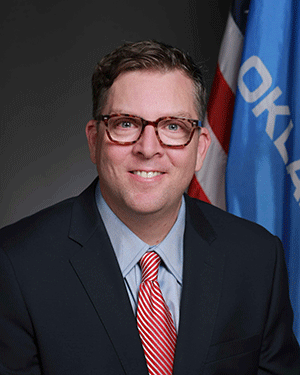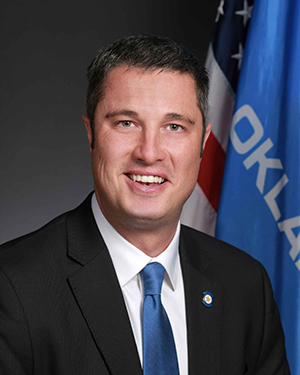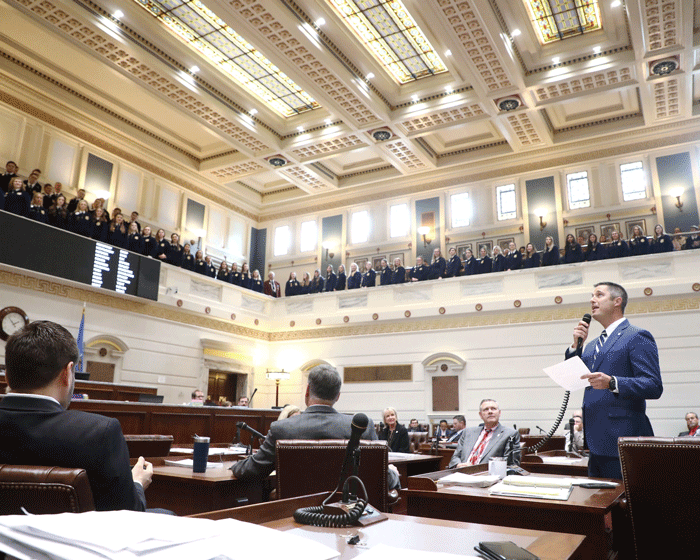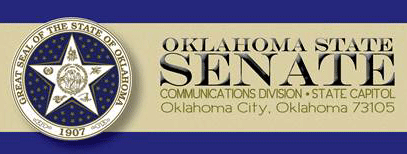OKLAHOMA CITY – To strengthen Oklahoma families and the state’s economy, the Senate approved legislation Wednesday to establish work or training requirements to participate in the SoonerCare Medicaid program. House Bill 2932, authored by Sen. Adam Pugh and Rep. Glen Mulready, would instruct the Oklahoma Health Care Authority (OHCA) to seek waiver authority to modify Medicaid eligibility criteria to require documentation of the same education, skills, training, work or job activities currently required by the Supplemental Nutrition Assistance Program (SNAP).
“This bill follows direction from the federal government to help those Medicaid recipients who are working-aged and able-bodied get back into the workforce and become a self-sufficient, contributing member of society. It will align SoonerCare qualification requirements with those already in place for Oklahoma’s SNAP,” said Pugh, R-Edmond. “I grew up extremely poor and my mom, who was a single parent, worked three jobs to support our family. I would work as many jobs as necessary to take care of my family. This will encourage Medicaid recipients to take some personal responsibility in getting the education or job training they need to support themselves and their families.”
The bill would mirror federal Medicaid law and SNAP by exempting from the new eligibility requirements those individuals who are 19 years of age or younger or over 60 years old, pregnant, medically-certified as physically or mentally unfit for employment, or who are a parent or caretaker of a dependent child under a year old.
According to the OHCA, there are approximately 106,600 Oklahomans who are a part of the parent/caretaker group receiving Medicaid coverage who are able-bodied/working-aged adults 19 to 64 who are not pregnant, disabled or blind. Thirty-two percent of those recipients were male and 25 percent were two adults living in the same home and both receiving Medicaid coverage. An analysis by the agency of SoonerCare members covered in FY’17 found that around 8,000 out of those 106,600 would not have met any of the exemptions outlined in the bill.
Currently, more than 600,000 Oklahomans receive SNAP benefits (formerly known as food stamps) each month. In FY’17, there were more than one million Oklahomans enrolled in SoonerCare Medicaid with nearly 796,000 SoonerCare recipients in March 2018. OHCA also noted there are nearly 81,000 SoonerCare recipients who also receive SNAP benefits.
The coauthor of the measure, Sen. Paul Rosino has been a strong advocate for the federal government’s push to get states to create work requirements for eligible Medicaid recipients.
“I applaud the Governor for championing these work requirements and my colleagues in the Senate and House for supporting them. This will provide these individuals with the tools, whether through education or job training, to help better their lives to be able to support themselves and their families,” said Rosino, R-Oklahoma. “We must break the cycle of government dependence that is getting worse with each generation. Since getting into office, personal responsibility and work requirements for able-bodied adults 19 to 64 has been one of my top priorities. I will continue to advocate for and support any legislation that helps strengthen Oklahoma families and our economy by helping more people become independent and self-sufficient.”
The bill now returns to the House for final consideration. Besides being approved by the Governor, the new eligibility requirements would have to also be approved by the federal Centers for Medicare and Medicaid Services.














